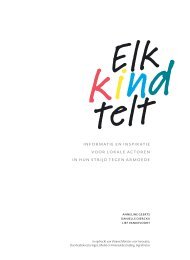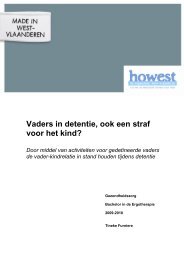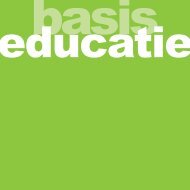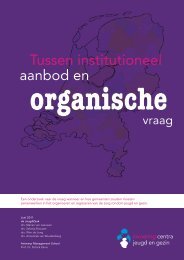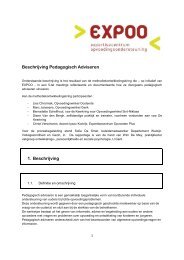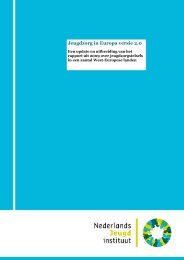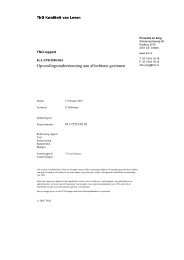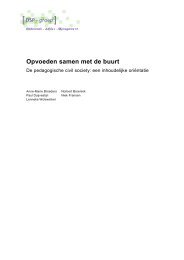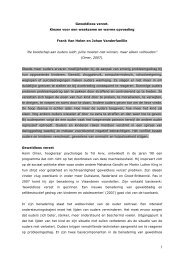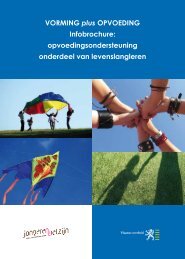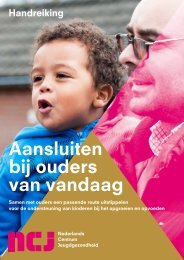Technique Is Not Enough (TINE) - British Psychological Society
Technique Is Not Enough (TINE) - British Psychological Society
Technique Is Not Enough (TINE) - British Psychological Society
- No tags were found...
Create successful ePaper yourself
Turn your PDF publications into a flip-book with our unique Google optimized e-Paper software.
Incentives for achieving model fidelity, high retention rates of low income parents, andoutcomes comparable to research trials should be built in at the organisational level. Forexample, a school that delivers a programme with high fidelity might receive funds ormaterial benefits like new equipment.Lastly, it pays to stress the real world impact of the programme at a local level to theimplementers themselves. Ideally, by tracking local child mental health and parentingoutcomes the feedback loop for practitioners will prove rewarding and will support theircontinued interest in evidence-based models. Other practitioners, of the same programmebut who have implemented it elsewhere, should have the opportunity to meet and inspireone another by explaining the ways in which they adapted the model locally and describethe difference the programme made in their locality by translating their outcome data intoexamples of real lives changed for the better. Vignettes or videos of parents and childrenspeaking about benefiting from the programme can really help. Parent programmegraduates as co-trainers in these circumstances would also be predicted to be very effective.On-going evaluation should be built in so that practitioners can continue to track thedifferences their intervention is making at a local level. Experiments in using ICT toprovide continuous ‘live’ feedback to practitioners are underway in several places andcould also assist here.Cost-effectiveness information is another area which requires further development byprogramme developers and researchers alike but it is being taken more and more seriouslyand is now provided by some programmes and some government agencies. For example:Incredible YearsWe have collected and contributed to papers on costs and cost effectiveness. Our BMJ Sure Start trialpaper was accompanied by a paper that explored cost effectiveness (Edwards et al., 2007). We hadpreviously been involved in an economic evaluation of earlier work and see this is as extremelyimportant. There are few studies in this area. An economic evaluation within the RCT of the IRWelsh programme for the IY toddler programme is currently being written up. Current work we aredoing to evaluate the IY baby and school readiness programmes includes cost-effectiveness measures.Ideas about how service systems can be made ‘programme ready’ are also important butare beyond the scope of this paper. See Little (2010), for a comprehensive summary ofthese ideas.The processes described in this section, if attended to carefully and consistently, willcontribute to a deep-rooted development of local ownership and a sufficient accrual ofintellectual capital to keep a programme going in a sustainable fashion. If we can achieve aposition exemplified by ‘It’s our programme and we want to keep it going because it worksfor us!’ we may succeed. On the other hand if our situation more resembles an impositionof ‘it worked for us and it will work for you’ then the causes of replication failure are likelyto loom high (Sandler, 2007). Originator ownership and appropriate pride must besubordinated to the wisdom of understanding that we all need the experience of‘discovering good things for ourselves’. If we really want local practitioners, commissionersand parents to feel they made a go of it themselves then we need to put in the right sort ofeffort at a local level to offer flexibility within programme models. Methods exist to enable64 Professional Practice Board



